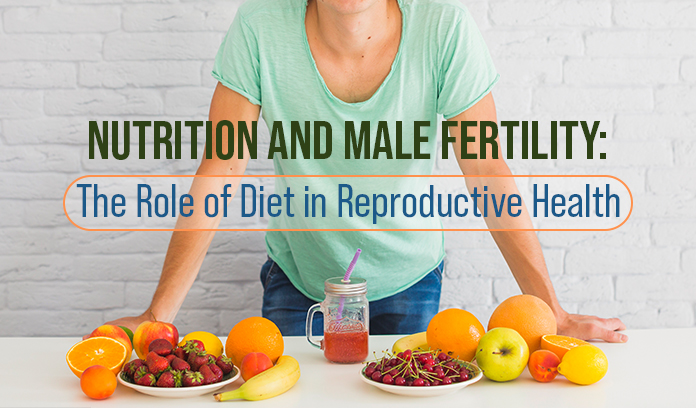The female aspect of fertility receives a lot of focus when it comes to reproductive health. But it’s important to understand that male fertility also plays an equal role in the process of conception. Recent studies have shown some benefits of diet and nutrition directly affecting male fertility. This blog will address some essential nutrients that can improve male fertility as well as the role of nutrition in reproductive health.
Understanding Male Infertility
Millions of couples throughout the world are affected by the common issue of male infertility. It is described as the man’s inability to impregnate his partner despite regular and unprotected sexual intercourse over an extended period. While there are many possible reasons for infertility, lifestyle factors like diet and nutrition have become important to look after.
Key Nutrients for Male Fertility
- Antioxidants: The body needs antioxidants to fight off dangerous free radicals. Oxidative stress brought on by high levels of free radicals may damage sperm cells. Strong antioxidants that can improve sperm health include coenzyme Q10, zinc, selenium, vitamins C and E.
- Folate and Zinc: Folate, a B vitamin, is essential for both male and female fertility. It contributes to the synthesis of DNA and the production of sperm. Additionally, Zinc also plays an important part in testosterone production and maintaining sperm motility.
- Omega-3 Fatty Acids: Omega-3 fatty acids have a positive effect on male fertility in addition to being beneficial for heart health. They can aid in improving sperm count and motility. Omega-3s can be found in fatty fish (such as salmon and mackerel), chia seeds, and flaxseeds.
- Vitamin D: Male infertility may be linked to vitamin D deficiency. It is advisable to receive adequate sunlight and consume vitamin D-rich foods including fortified dairy products like, egg yolks, and fatty fish.
- Lycopene: The powerful antioxidant lycopene is mostly found in tomatoes, watermelons, and other red fruits. Studies have shown that it may improve sperm concentration and motility.
- B vitamins: B vitamins, especially B12 and B6, are essential for the growth and function of sperm. The B vitamins are found in whole grains, meat, fish, and leafy greens.
The Impact of Unhealthy Habits
Along with focusing on the proper nutrients, it’s important to avoid harmful habits that can negatively affect male fertility. Smoking, drug usage, and excessive alcohol intake have all been associated to reduce sperm quality. Furthermore, it is important to maintain a healthy weight through a balanced diet and regular exercise because obesity may result in hormonal imbalances and reduced fertility.nutrients for male fertility
Consider working with a registered dietitian or healthcare professional to develop a suitable diet plan that supports reproductive health if you and your partner are trying to conceive. Keep in mind that small dietary changes might have a huge impact on your journey toward parenthood.

